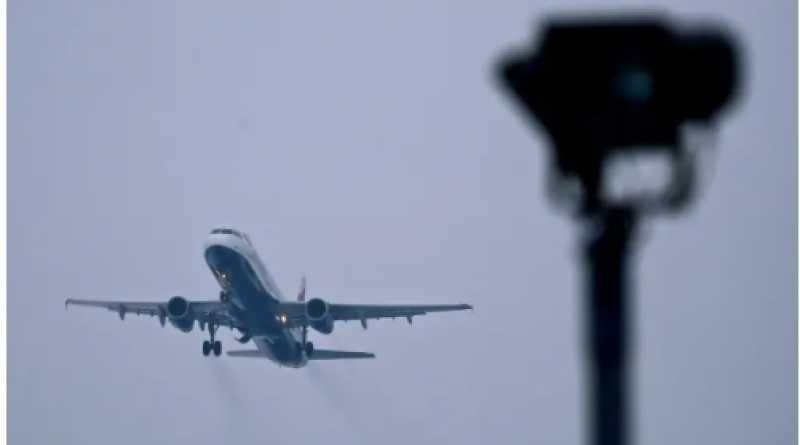Pressure on UK as Germany backs ending free carbon permits for airlines

Boris Johnson has pledged to give details of how UK will meet its climate targets before Cop26.
The German government is backing an extension of EU carbon pricing that will end free carbon permits for airlines, putting pressure on the UK to put in place a similar package to meet climate targets.
The European Commission will propose a dozen climate policies on 14 July, each designed to slash greenhouse gases faster in line with an EU goal to cut net emissions by 55% by 2030 from 1990 levels.
The package will include reforms to the EU carbon market and a border levy to impose CO2 costs on imported goods. All the policies will need approval from EU governments and the European parliament.
Boris Johnson has pledged to give details of how the UK will meet climate targets ahead of the Cop26 conference in Glasgow this year.
Ministers are concerned that the costs of transition arrangements to reduce emissions 78% by 2035 will dramatically force up the cost of fuel for transportation, including flying, potentially prompting protests and a backbench rebellion by Tory MPs.
According to a document seen by Reuters, Germany backed the commission’s plan to impose CO2 prices on transport and heating in buildings through a separate system to the EU’s existing carbon market.
“The long-term goal should be to have a uniform cross-sector carbon price in the EU,” the document said.
The carbon market forces factories, power plants and airlines to buy permits when they pollute in the EU. Industry and airlines get some for free, shielding them from carbon prices that have soared to record highs this year.
The UK has created its own carbon pricing market since leaving the EU, but it mostly follows the existing EU model and focuses on heavy industries and energy providers.
Critics of carbon pricing say it has done little to curb emissions after a collapse in the price during much of the last 10 years and the overuse of free permits, allowing firms to use energy at little extra cost. The price has risen sharply recently as economies have begun to recover from the pandemic, coming close to caps put on the price by the EU and the UK.
Berlin this year imposed a national CO2 levy on suppliers of heating and transport fuels, set at an initial €25 (£21.50) a tonne. However, the plan to reform the EU-wide system and impose higher costs on heavy carbon users is facing pushback from some EU governments and lawmakers, who fear it could translate into higher household fuel bills.
Brussels is under pressure to come up with a compensation scheme to ensure governments have enough resources to address the policy’s social impact – particularly on low-income households and people who rent their homes, Germany has said.
The UK government is going to face the same dilemma if it pushes the cost of carbon emissions on to consumers, many of whom are on low incomes and already struggling to pay heating bills.
Berlin said the reforms to the EU’s carbon market should prolong free carbon permits “to an appropriate extent”, but end them soon for aviation, the document showed.
Analysts have said that to comply with World Trade Organization rules, the EU must phase out free permits when it introduces a carbon border levy on imported goods.
June 2021
The Guardian




